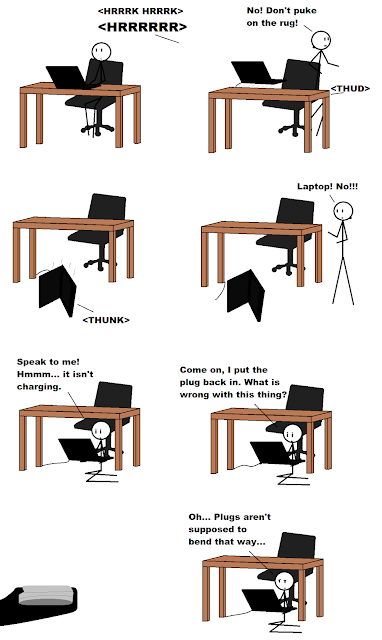More on all the words related to
verse, which is from the
Proto Indo European wer-,
to turn or bend. Once again, this
week’s words have been etymologized before, but it’s not like anyone can stop
me.
Versus we kind of looked at last
week since it’s the Latin version of
verse.
In English, it showed up in the
mid fifteenth century,
as legal terminology—hence why it stayed in its Latin form. It’s from the
classical Latin versus, obviously, meaning turned
towards or against. Its verb form is
vertere,
to turn,
and that’s from the PIE wer-, turn or bend. If legalese wasn’t so entwined with
Latin, it would probably just be verse.
Next, version, which looks like
it’s related to verse though I have a hard time imagining how. Well, might as well see
why. It showed up in the
late sixteenth century from the French
version (
same meaning),
which is from the
Medieval Latin versionem, a
translation or a turning. It also comes from vertere, so because a translation
was a different “turn” of something, we have version. I guess that makes sense,
but still…
Versatile showed up in the
seventeenth century, originally
meaning something not being constant before it changed to “able to do many
things well” in the mid eighteenth century. It comes from the classical Latin
versatilis,
versatile,
and it is from the verb
versare,
to turn or to engage.
It is indeed related to vertere. It’s what’s known as a frequentative version
of the word—a verb of continuing action, like to wrestle is a frequentative of
to wrest. I guess being versatile requires a lot of turns.
Now for more words that end in
verse. Universe showed up in the
mid sixteenth century,
coming from the
Old French univers and
before that the classical Latin
universum, the
universe.
The uni- is from
unus,
one,
and the rest is versus. That means the universe is… one turn??? Funnily enough,
university is actually an older word, having shown up in the
fourteenth century. It’s from the
Anglo French université/Old
French
universite, from the Medieval Latin
universitatem, from
universus,
whole or entire (hence universe). It might still seem weird for university to
come from that, but as it turns out, it’s from a Latin phrase,
universitas
magistrorum et scholarium: community of masters and scholars. A university
is a “community”.
Diverse is kind of weird since it used to be spelled
divers, but no, it is not the plural of diver. With the e at the end, it showed up in the
late fourteenth century while divers showed up in the late thirteenth century [https://www.etymonline.com/word/divers] from the classical Latin
diversus, different [https://translate.google.com/?sl=la&tl=en&text=diversus&op=translate]. It’s a mix of the prefix dis-, meaning aside [https://www.etymonline.com/word/dis-] here, and versus, so diverse is to turn aside. Somehow.







